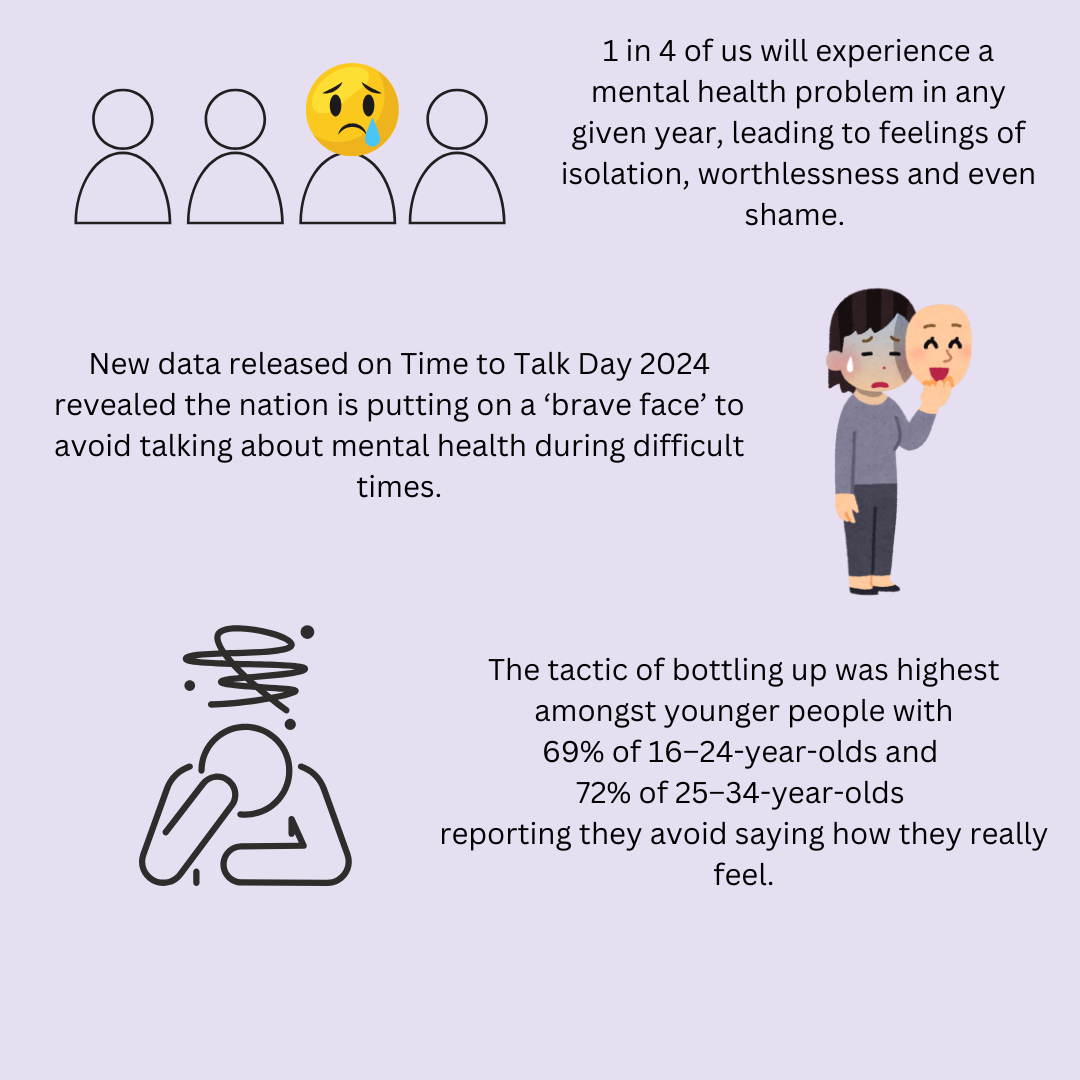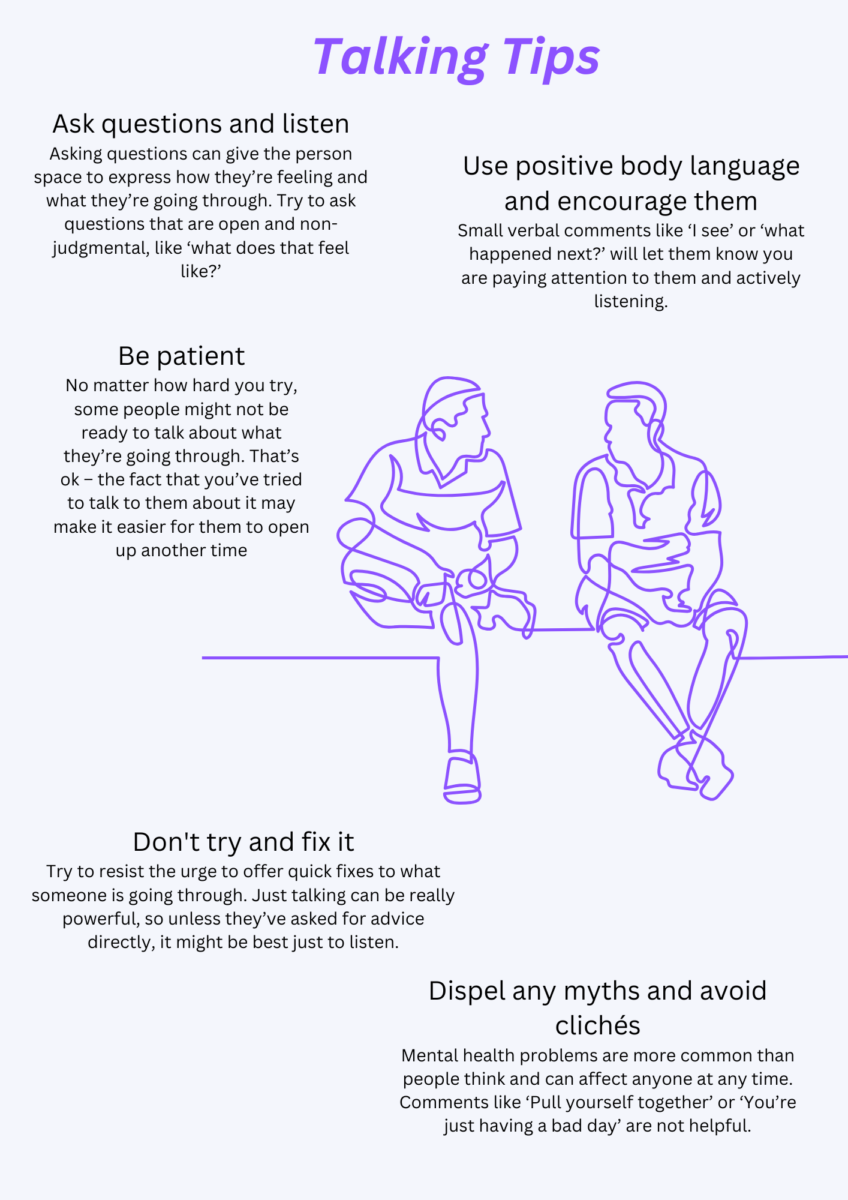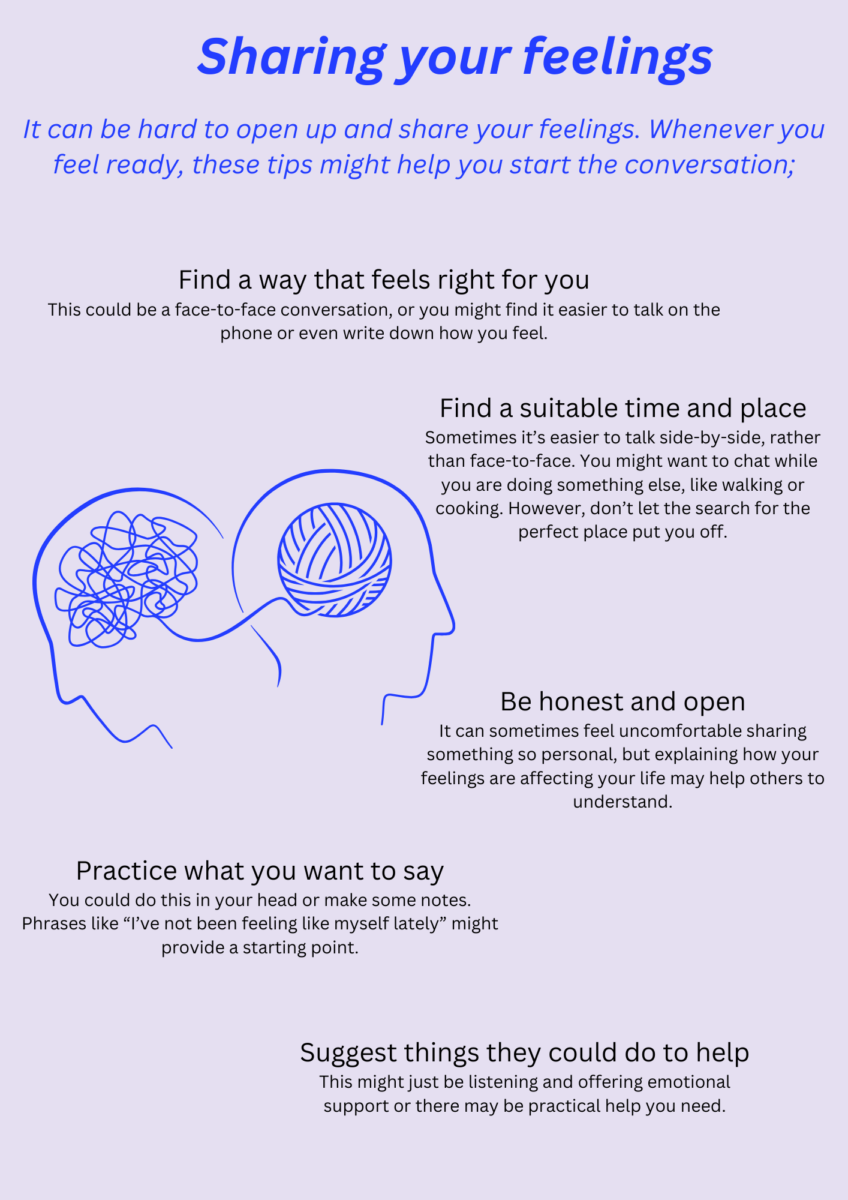Time to Talk Day 6th February 2025
Time to Talk Day is an annual awareness day held at the beginning of February. It’s one of the many opportunities through the year to start a conversation about mental health.
Time to Talk Day is an annual awareness day held at the beginning of February. It’s one of the many opportunities through the year to start a conversation about mental health.
Time to Talk Day is an annual awareness day held at the beginning of February. It’s one of the many opportunities through the year to start a conversation about mental health.
The day is all about creating supportive communities by having conversations with family, friends, or colleagues about mental health. We all have mental health and by talking about it we can support ourselves and others.
Time to Talk Day 2024 revealed that nearly two thirds of the UK public put on a brave face to avoid talking about their mental health. And nearly half of us are less likely to open up as we don’t want to worry others in already difficult times.
But talking openly and honestly can be the first step towards better mental health for everyone. It can reduce stigma and help people feel comfortable enough to seek help when they need it.
That’s why this Time To Talk Day, we want everyone to get comfortable and start talking about mental health.

Although sometimes it may feel easier to tell people we’re ‘fine’, bottling things up and putting a brave face on can have a negative impact on our wellbeing. We wanted to use the day to remind people how talking about mental health has the power to reduce feelings of isolation and loneliness.
In our fast-paced world more employees than ever before are experiencing chronic stress that leads to burnout and poor mental health.
Burnout can creep up and get a grip of any of us, before anyone even realises and apart from affecting an individual’s well-being there are consequences for organisations too, such as increased absenteeism, reduced morale and a drop in productivity.
Anyone can experience mental health problems at some point in life. Anxiety and depression are the most common and responsible for over half of all ill-health at work.
There are lots of ways you can get conversations going and they don’t always have to be formal.
It’s important to build supportive relationships where people feel comfortable to talk about any challenges they’re experiencing.
If you think that a friend or colleague is having problems, encourage them to talk to someone. It could be a trusted colleague, their line manager, a trade union representative, GP, or occupational health team if they have access to one.

Although employers have a legal duty to protect employees from stress at work, diagnosing and treating stress isn’t their responsibility.
Employers have a responsibility to identify the risks of stress and act on them to improve conditions at work. That might mean making adjustments and helping someone manage a mental health problem at work.
Mental Health UK are calling out for employers and employees to take shared responsibility for workplace mental health, encouraging everyone to educate themselves to recognise the signs of poor mental health and for employers to provide support to create a healthier, more resilient workplace where mental wellbeing is a priority for all.
Anxiety can lead us to ruminate and often to worry unnecessarily. If staff are worried about their job, maybe they’ve heard on the grapevine that there are changes afoot; this can weigh heavy on people’s minds. An anxious employee may struggle to sleep, become unwell and end up burnt out leading to poor timekeeping, under performance or having to take time off sick. In some cases, employees may even resign. Absence from work can lead to lost earnings, which brings on more anxiety and so we end up in a vicious circle. To break the cycle and reduce the risk of anxiety escalating and staff going off sick, communication is key. Be as transparent and open as possible as once the office rumour mill starts grinding it’s difficult to stop. Be proactive, consider how best to communicate changes within the business, when will be the best time to deliver potentially worrying news, who should the news come from, how will it land and what steps will you need to take to ensure staff are supported and their concerns are dealt with in the correct way.
Make sure you have regular check ins with your team, particularly those who are working remotely, out on site or working from home. Keep an eye on the hours that they’re working and make sure they are using up their annual leave.
An appraisal and objective review process will benefit you and your employee two-fold. It will give you the opportunity to measure performance and make sure your employee is on track with their objectives. If your employee is struggling, they may be suffering from burn out and poor mental health, which means that they may not be fully engaged or fully effective. An appraisal or objective review will provide the opportunity for both parties to discuss their concerns.
It’s important that when an employee has been off sick for any reason, but particularly when it is because of poor mental health, that you carry out a return-to-work interview. This is your opportunity to have a conversation about what has caused them to be off, it’s not always work related. If the absence has been triggered by work, try to find out what the problem is and how this can be resolved.
Much of the time employers only become aware that an employee has “Work Related Stress” when they go off sick. Often an employee will be signed off sick for one reason and then we see WRS being mentioned on the fit note as the absence progresses. Each case will differ but if you can, check in with the employee before they return to work, take the opportunity to discuss what is causing them to feel stressed and arrange to carry out a WRS Risk Assessment when they’re ready to return.
Remember to listen to your employee, their point of view about being overloaded and unable to cope with tasks may well differ from yours but should not be ignored. It’s ok to ask if everything is OK outside of work, it’s often the case that a personal issue may be affecting an employee’s ability to function effectively at work. It’s not realistic to expect an employee to leave their personal problems at home and to just “get on with it!”
It is recommended that job offers are made subject to the completion of a satisfactory health questionnaire and that questionnaires are then re-issued annually, as health, medication and welfare needs can change over time. It’s even more important to carry out regular health checks, particularly for staff in safety critical roles, such as operating machinery or working at height.
It’s also important to review your health questionnaire, to make sure that the questions you’re asking are relevant and not too intrusive. It’s not appropriate to be asking about health matters, that have nothing whatsoever to do with the employees’ ability to carry out the role.
If an employee confirms on a questionnaire that they are affected by poor mental health, it’s important to follow up to find out if this is a long-term issue and how it impacts them day to day at work. A long-term underlying mental health issue may mean that the employee falls within the definition of being disabled under the Equality Act 2010 and that you are legally obliged to explore reasonable adjustments. Failing to do so can put the employer at risk of a disability discrimination claim, for which the average award in 2024 was £44,483.
Consider introducing an employee assistance programme, which staff can access on a confidential basis for expert advice. The cost of this benefit is generally outweighed by the value it can add to your staff and your business. Also, review your own absence, health, and wellbeing policies to ensure that staff are aware that you will take reasonable steps to support them.


It’s great to start the conversation about mental health. Sometimes this can mean that people currently experiencing mental health problems will need some support, as sensitive conversations may bring up difficult things. There are lots of places to which you can go or direct people for help.
If you would like further information on how to manage mental health and have a meaningful conversation, eradicate burn out and WRS risk assessments, please do not hesitate to call Spectra